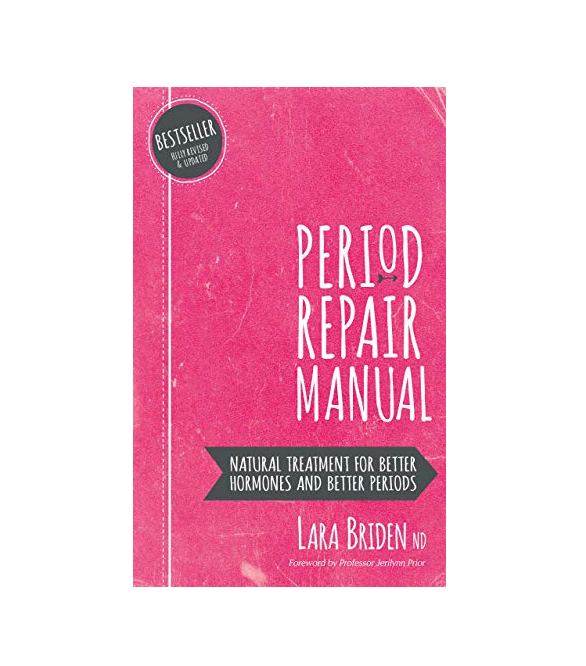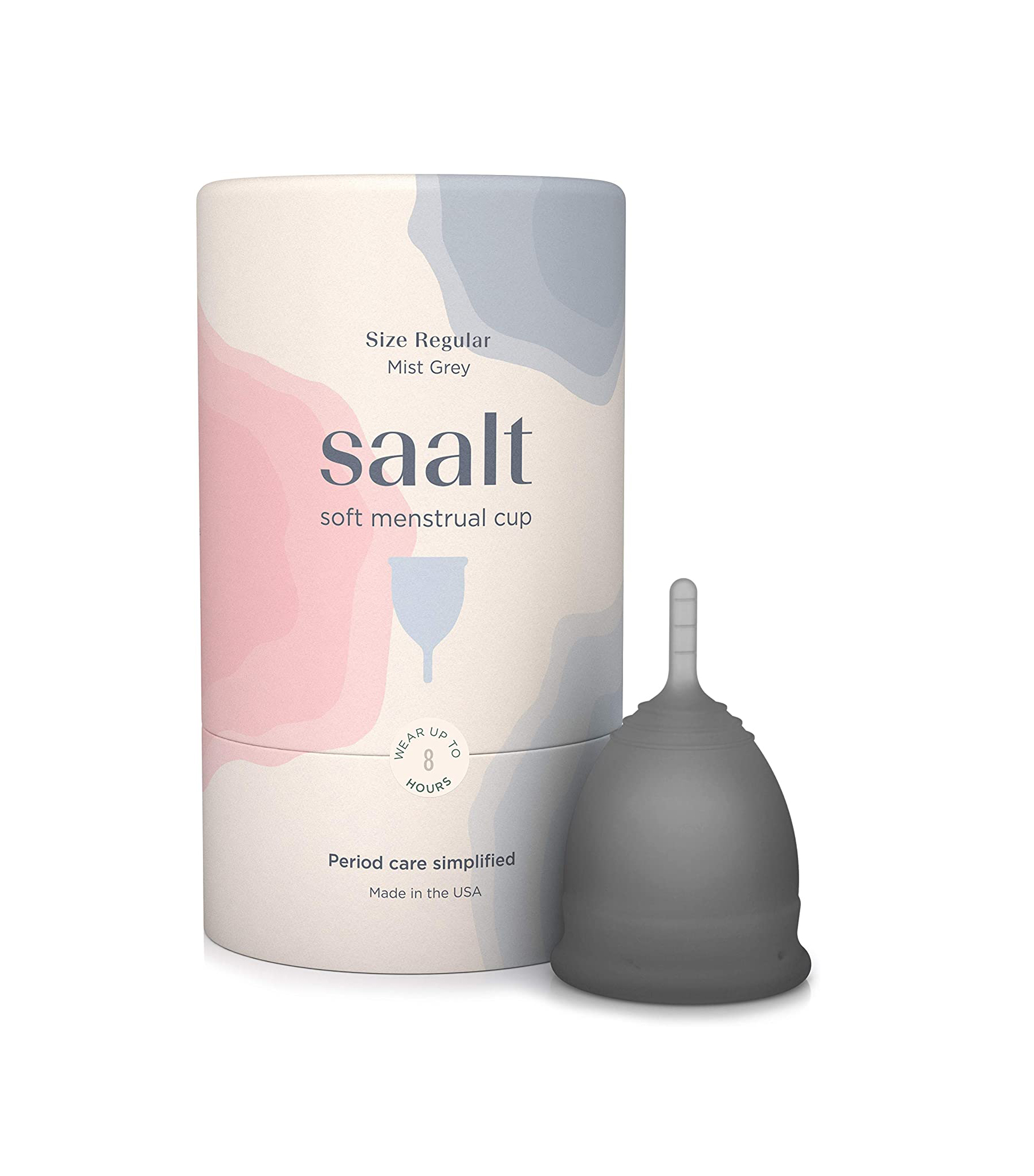Decoded: Not Getting Your Period While on Birth Control

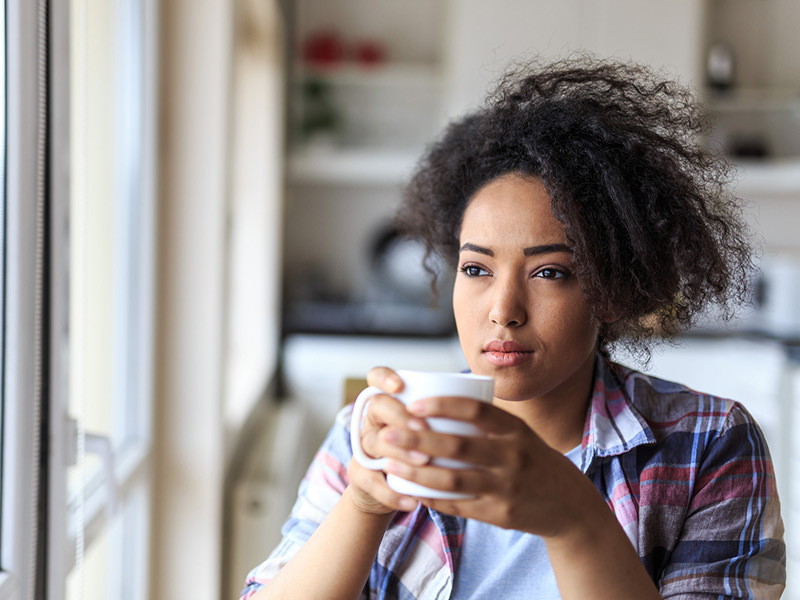
Periods are messy. And while I realize (and yes, quite intended) the pun, the statement is wholeheartedly true. After all, our periods are *somewhat* unpredictable, sometimes painful, and oftentimes, they're easily misunderstood and they can even be viewed as a hindrance or a diabolical curse. (This coming from someone who used to experience such debilitating pain each month that I'd miss a day of school like clockwork.)
However, what I had no way of knowing back then is that it would take roughly eight years and a nasty experience with anorexia before I would want to understand my period and give it the respect and attention it deserved. Sure, blame it on the fact I haven't gotten a period (or at least a regular one) since high school, but now I miss it, and truthfully, I don't feel like a woman. Something I used to rebuff has now become something intangible—a missing piece of a puzzle that is starting to feel increasingly complete, thanks to an amazing career, a stellar support system, and a stronger comprehension of my self-identity. And just as the quest for a missing puzzle piece the size of a postage stamp may seem daunting or even impossible, so can the quest for a healthy menstrual cycle. And here's the kicker: I know I'm not alone.
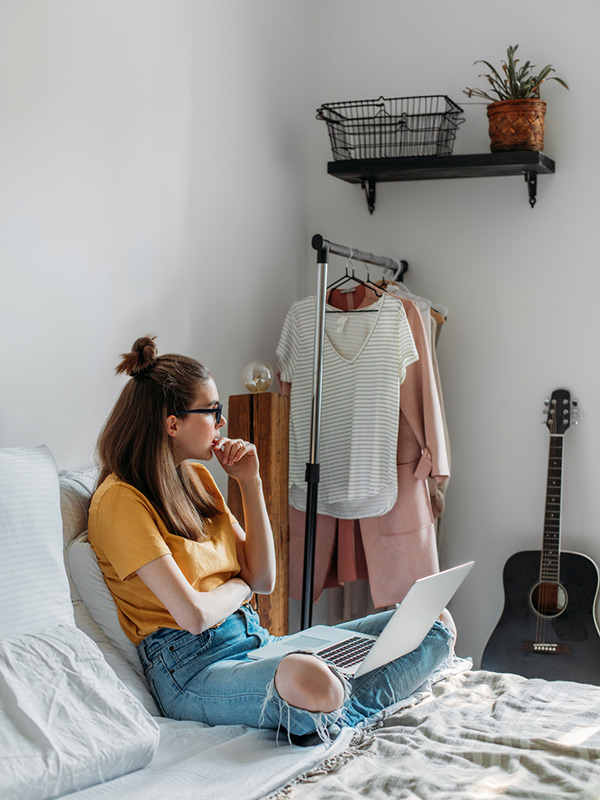
After going a few years without my period thanks to the hormonal ups and downs that come with eating disorder recovery, I kind of felt like Humpty Dumpty (bear with me here). I had taken a very hard fall battling anorexia, and after a time of feeling slightly cracked and bruised, I expected to be put back together again by all the king's horses and all the king's men. Aka: my physician and Western medicine. Which, to my surprise, involved the suggestion to go on birth control. Despite the fact that medically speaking my body was "recovered" (i.e. my heart was no longer beating dangerously slowly and my weight was in a healthy BMI range), my hormones were lagging behind. Namely, my estrogen levels, which were causing a pre-menopause-esque situation in which I wasn't menstruating. I was frustrated, and birth control, my doctor said, would be a good substitute. A solution? Well, in the most literal sense of the word—possibly. But a healing, legitimate fix? Well, not really. So I abstained.
A couple of months ago, when I was writing this article (oh, and this one too), I had the chance to interview and chat numerous times with Lara Briden, ND, who specializes in women's health and is the author of two very helpful books (I refer to them often) Period Repair Manual ($10) and Period Repair Manual Second Edition ($10). One of the biggest takeaways I learned from Briden: Our period is like a report card, serving as one of the body's most useful and inherently accurate indicators of overall health.
So, that being said, what happens when we're on birth control that incurs monthly pill bleeds while simultaneously hibernating our natural menstrual cycles? How are we to know if our reproductive system is working the way it should be, and without those automated bleeds, if we'd otherwise have a regular and healthy cycle? Interestingly, it was a poignant excerpt from Briden's second book that, while inarguably opinionated, also struck a cord.
"We're in a strange time for women's health. A time when we think it's okay to routinely give a drug to switch off the hormones of millions of women and girls. What are we doing?" Briden asks. "Why should we have to shut down a woman's entire hormonal system just to accomplish the simple job of preventing pregnancy? Fertility is an expression of health and not a disease to be treated with a drug.
"Imagine if hormonal birth control were proposed today for the first time. Quite likely, most women, doctors, and scientists would be appalled. But that's seeing it from a modern perspective, which values women and women's hormones. The pill is far from modern. It's a relic from the 1950s when people had different ideas about things. For example, they thought DDT was fine and normal. They thought smoking was fine and normal. And of course, they thought contraception should be illegal.”

So whether you agree or disagree, where does an analysis like this leave us? And, in consideration of the fact that Western medicine and our doctors do, indeed, have our best interests in mind (each and every expert I talked to wanted to iterate that), how are we supposed to understand what is and isn't normal and what is and isn't healthy?
Overwhelmed? Confused? Questions? I warned you. Periods are messy. Hopefully, however, this story can serve as a springboard and will inspire you to investigate an approach to your period that feels healthy and safe for you.
That being said, after consulting a variety of experts on the topic, we have some information and thoughts. "Thoughts" (versus "answers") because any discussion on reproductive health is just that—a discussion. Sharing knowledge, encouraging education, and imparting zero judgment or prescriptive demands. Also worth pointing out? This is only the tip of the iceberg where our menstrual health is concerned, and questions surrounding our periods, are in a word: complicated. Ahead we're decoding the somewhat murky and somewhat unwieldy topic of a suppressed or absent period while on the pill. Let's dive in.
The Basics: Pill Bleeds vs. Periods
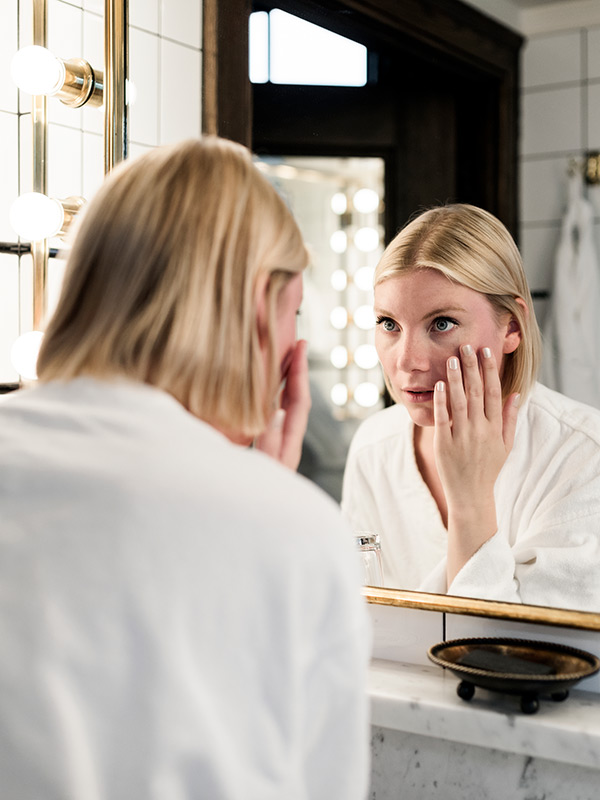
As Briden quickly reminded me when I touched base with her prior to writing this story: "Pill bleeds are not periods. There is no medical reason to bleed monthly while you're on the pill." In fact, when birth control was first conceived, women didn't bleed at all. However, because this felt unnatural and (as I personally mentioned earlier) inherently "unwomanly," the birth control formula was recalibrated to incur a pseudo-period each month. Psychologically, this was probably helpful. But what about biologically?
As she states in her book, "Ovulatory cycles (not the pseudo kind) are both an indicator and a creator of health," which she points out to me is consistent with the 2016 ACOG statement that regular menstrual cycles are a "vital sign" of health. So to be perfectly blunt (and actually completely unbiased), pill bleeds mean nothing. And without your natural cycle and hormonal highs and lows all a part of the process, like it or not—it's hard to know what's happening down there. Which is interesting, considering many women (one in three, according to Briden) are put on birth control as a quick, one-stop solution for an absent period or irregular hormone levels.
"Hormonal birth control can certainly suppress symptoms, but let's be clear: It cannot give you a period," she confirms in her book Period Repair Manual, Second Edition ($10). "Pill bleeds are not periods and they do not equate, in any sense, to the cycling of your own hormones. Instead, they're pharmaceutically induced bleeds, which are arbitrarily coordinated into a 28-day pattern to reassure you that your body is doing something natural. Having the occasional pill bleed is necessary to prevent breakthrough bleeding, but it doesn't have to be monthly. A pill bleed could just as easily be every 56 days or every 83 days or any number of days you'd like."
Which interestingly, aligns relatively neatly with the Ayurvedic (i.e., Eastern) way of thinking. "In Ayurveda, when it's time for a woman to have her period, she should have her period," says Martha Soffer, an Ayurveda expert at Los Angeles' Surya Spa. Traditionally, menstruation is considered a "lucky time," as it's thought to be nature's way of purifying the body. Soffer continues: "During periods of breastfeeding, the period naturally subsides because the uterus is rejuvenating, and instead of energy being devoted to purification, the energy is being used to create highly nutritious milk. And in Ayurveda, the literal breastfeeding, the sucking process, helps the body contract the uterus." But otherwise, (and if we started to lose you there) Soffer also stands by the idea that natural menstruation, uninhibited by birth control, is crucial to balance estrogen levels, which can help us feel youthful and keep our skin glowing and healthy.
How Did We Get Here: East vs. West
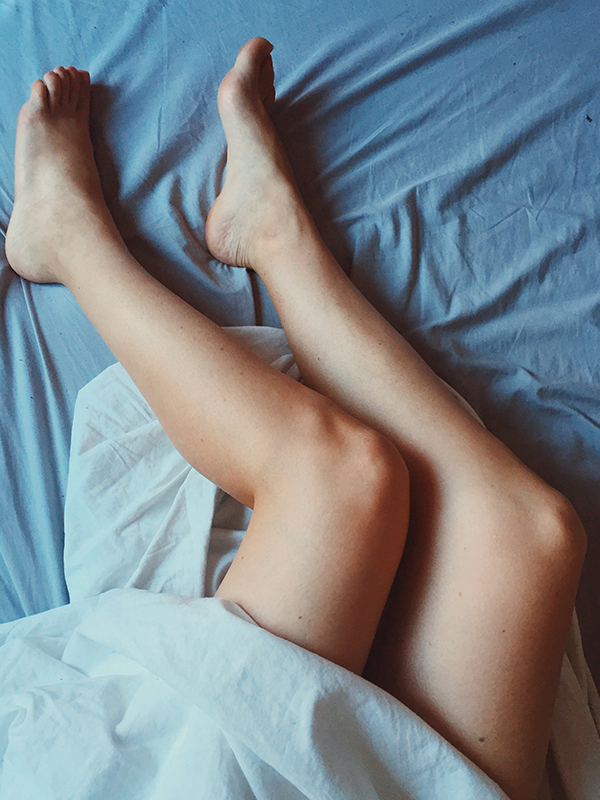
As I've struggled with my own menstrual and hormonal issues over the years, one person I've looked to time and time again as an invaluable resource is Robyn Nohling, NP, RD, CDN, who in addition to running her own nutritional counseling program and e-courses on nutrition, hormone, and period repair, also has an amazing blog where she discusses hormones, periods, and other women's health issues with a diplomatic and refreshing perspective. I was lucky enough to speak with Nohling on the phone, and she also connected me with a few of her most relevant blog posts on the subject. Curious to understand why so many doctors prescribe birth control as a hormonal "fix" or don't seem to take issue with it suppressing our natural cycles, I found this particular excerpt from this blog post helpful.
"Back in my early 20s when I was just starting my career as a dietitian, I knew very little about my lady hormones. Aka my reproductive system. What I did know is that I never got my period except when I was taking the birth control pill. What I also knew is that after a slew of blood tests, ultrasounds, and multiple rounds of the Provera challenge that didn't induce a period, doctors didn't know why I wasn't getting a period on my own. I was told, 'this is normal,' and the solution was to take the birth control pill.
"I trusted my doctors, so off I went to go pick up my prescription. Looking back, I know my doctors had the best intentions and they truly were trying to help. I've never been to medical school, but I have been through nursing school, and we receive very little if any education on treatment for missing or irregular periods outside of medications and birth control. So I don't blame the doctors or nurses. I just think as healthcare providers we're undereducated. I was too."

And despite their different approach to menstruation, Soffer, like Nohling, also comes to Western medicine's defense to a certain degree: "Western medicine, which does do many wonderful things, often takes the easy way to solve a problem without truly considering or understanding the ramifications. That's why certain side effects of Western medicine are considered acceptable collateral damage." Soffer explains that the first, and perhaps the main issue is solved (in birth control's case: an unwanted pregnancy), but the holistic picture, which includes the whole body and our wellness in the long term, may become compromised.
So while Soffer iterates that you most certainly won't die from missing a period, "it's not how we were designed, and over time, our bodies can be negatively impacted." But how?
Why Not Getting a Natural Period Could Be Problematic

While in the throes of PMS, it's easy to condemn our periods and the thought of not having one (be it due to birth control or a naturally occurring disappearance, like in my case) is slightly dreamy. Or as Nohling puts it, "convenient." However, in the long run, going without a natural period can be detrimental to our health.
"When your period is missing, there's an altered production of reproductive hormones, and women often become estrogen-deficient," Nohling explains.
"Estrogen is like the queen of female hormones, and when there's not enough of it, bone health deteriorates, leading to osteoporosis in addition to infertility, breakdown of the vagina and breast tissue, and, if a missing period is induced by overexercising (something you might not be aware is happening if you're on the pill), it may increase the risk of heart attacks later down the road. I don't say that to scare you but instead to perk our heads up."
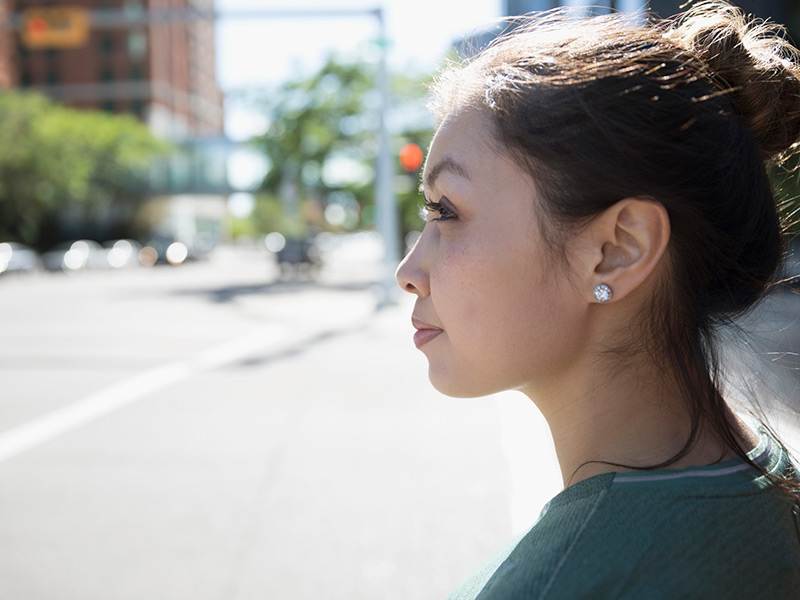
It might be masking underlying health issues: And honestly, I'm the perfect example. Though I'm now technically "recovered," my history with disordered eating and the hormonal and intrinsic ramifications I've had because of it has affected me physically. Naturally, I'm not getting a period, which signifies that somewhere in someway things are a little off-kilter in my body. However, if I was on birth control and getting regular pill bleeds, I would be unaware that my body was trying to tell me something.
"When I'm regularly getting a cycle, I'm actually authentically excited because it tells me things are working right in my body," Nohling explains in this blog post. "And if it doesn't come because there has been a month here and there when it hasn't, I take a step back and look at what has changed in my life. Am I stressed? How is my sleep? Am I eating enough? Have I increased how much I'm running without being mindful of eating enough to support my energy output?
"The body's hypothalamic pituitary gonadal (HPG) axis is super sensitive to changes in the environment. This rhythmic pulse of hormones happens on a regular schedule that is precisely timed. That means lack of sleep or insufficient energy intake or emotional stress or other environmental factors can affect this cascade of hormone release that causes a woman to menstruate. Which is why it's so important to focus on appropriate sleep, stress management, and self-care. Nobody ever mentioned those things to me or asked me about them for years."
And if you're on birth control, it's hard to know how your body is naturally responding to such changes.

It may lead to (or perpetuate) hormonal incongruencies and imbalances: "Speaking in an Aruyvedic sense, there is a natural process of purification with menstruation we're lucky to have," says Soffer. "When we stop that, hormones become imbalanced, which over time can lead to the creation of cysts and fibroids. When the hormones are imbalanced, other physical and emotional symptoms like thinning hair and even things like anxiety or depression can develop."
Soffer also states that down the line these hormonal imbalances could impact hormone and reproductive health, although scientifically this is inconclusive and an idea Briden negated when I brought it up to her during a phone conversation.

It may compromise bone health: This one is a tad controversial because, while estrogen deficiency and an MIA period may deteriorate the integrity and strength of bone health over time, some studies have said going on birth control can help counteract the problem. However, for the most part, Nohling disagrees:
"The idea that birth control can help protect bone health in lieu of a natural cycle is something I actually thought to be true up until about three years ago when I began nursing school and starting looking at the research." Which, she found out, wasn't all that conclusive. "Some studies showed birth control might help prevent further bone loss and some showed some small increases in bone density over various timeframes. Overall, though, the evidence for birth control's role in bone protection is pretty underwhelming. Actually, oral contraceptives are not recommended to protect bone health in the presence of amenorrhea (not getting a period). But supporting your body in finding its healthy set point weight and restoring your natural period does do wonders for your bone health. You won't be able to reverse the bone loss completely, but you can replace significant amounts of lost bone," Nohling explains.
What About a Missing Pill Bleed?
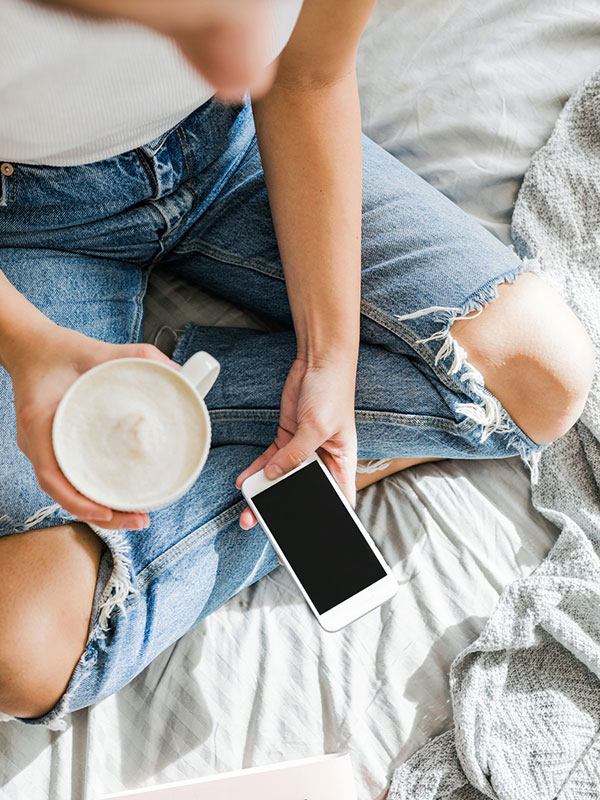
Our next burning question: What's going on if you're taking hormonal birth control and you're not even getting a pill bleed? Is it normal? According to Nohling, that's a yes.
As she mentions in her post here (and emphasized while on the phone with me), it can also be normal to skip pill bleeds as well since the pill introduces a variety of synthetic hormones into the body and different types of pills will have different amounts of hormones that can affect our menstrual cycle. Here's her recommendation:
"First, make sure you're not pregnant. Second, make sure you've been taking the pill as prescribed—even one missed pill can cause irregular bleeding. Continuous birth control can also prevent a monthly bleed—which is actually the point of taking that type of birth control and an expected side effect. Since birth control was first introduced, the amount of estrogen in the pill has decreased to make the pill safer and to reduce side effects. Progestin levels have also decreased. There are now all kinds of pills with varying levels of estrogen and progestin. If you're taking a low-dose birth control, that may result in not enough buildup of your uterine lining to produce a full bleed. So you might experience spotting or no bleeding at all because there isn't much uterine lining to shed so you don't experience a full withdrawal bleed."
If You Decide to Go Off the Pill…
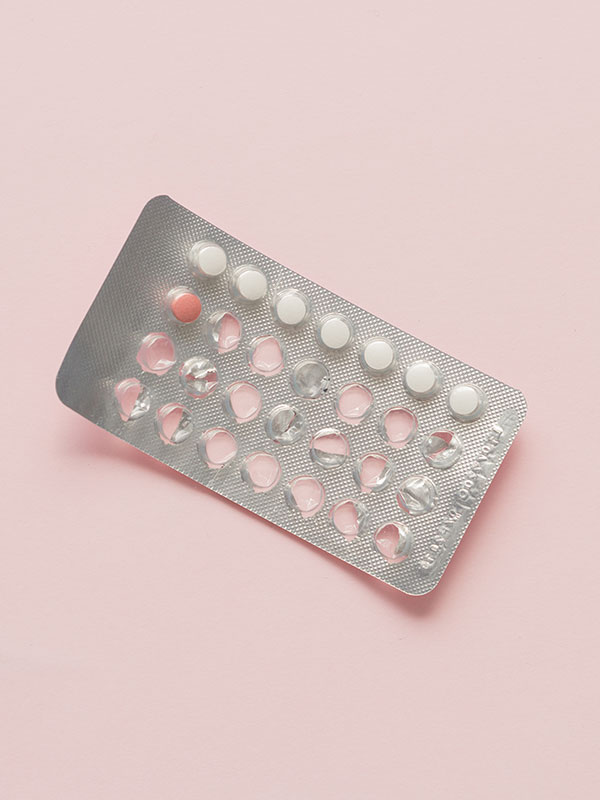
Know what to expect: "After going off the pill, many women may experience a short-term adjustment—weight, emotional downs, skin issues—all due to the newly created hormonal 'imbalance,'" clarifies Soffer. However, she says that typically within as little as four months, these kinds of symptoms will begin to dissipate.
And as Nohling points out, don't be alarmed if your natural cycle doesn't immediately return. "You may have heard of something called 'post-pill amenorrhea syndrome,' which alludes to the idea that you don't get your period within three months after stopping birth control because of the birth control itself. This isn't a diagnosis supported by research and there isn't a 'cause and effect' phenomenon between stopping birth control and not getting your period."
According to Nohling, women who go off birth control usually regain their cycle within two to four weeks or possibly even a bit longer. However, if you still haven't gotten your period after more than a couple of months, she recommends following up with your doctor, as there could be an underlying issue the birth control was masking.
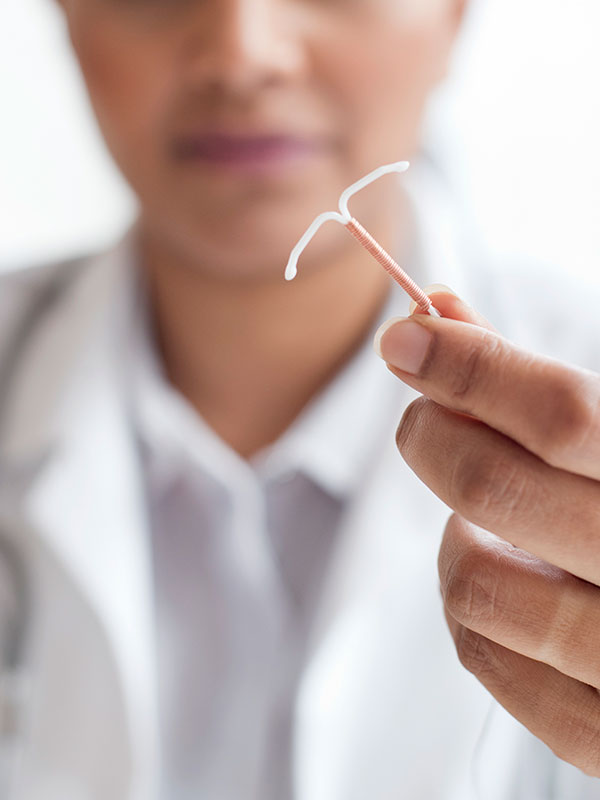
Know your alternatives: Hopefully, this goes without saying, but just because you may decide to go off the pill doesn't mean you throw in the birth control towel altogether. And luckily, there are options.
"Condoms, diaphragms, cervical caps, Neem oil in the vagina (which is also antibacterial, a spermicide, and a lubricant), basal thermometers, the nonhormonal copper IUD… The point is that while nothing is 100% effective, combining a couple, or few natural methods can be an effective alternative to the pill," concludes Soffer.
Curious for more options? We have a complete guide here and Nohling overs an entire host of alternatives here.
Next up: This Is the Best Type of Birth Control for Heavy Periods
This article was originally published at an earlier date and has since been updated.
This article is provided for informational purposes only and is not intended to be used in the place of advice of your physician or other medical professionals. You should always consult with your doctor or healthcare provider first with any health-related questions.

Erin has been writing a mix of beauty and wellness content forBest Knockoff Luxury Clothing for over five years. Prior to that, she spent two and half years writing for Byrdie. She now calls Santa Monica home but grew up in Minnetonka, Minnesota, and studied writing, rhetoric, and communication at University of Wisconsin, La Crosse. She studied abroad in Galway, Ireland, and spent a summer in L.A. interning with the Byrdie andBest Knockoff Luxury Clothing family. After graduating from UW, she spent one year in San Francisco, where she worked as a writer for Pottery Barn Kids and PBteen before moving down to L.A. to begin her career as a beauty editor.
